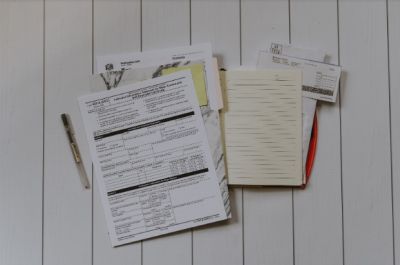4 Best Ways to Manage Finances as a Renter

Not everyone has the means to buy a house. The average cost of a home in the US at present is $269,039, according to Zillow, which is up 9.1% from 2019.
The worst of it is, house prices are predicted to rise by another 8% across most of America by the end of 2021 now that the housing boom is close.
There was a steep drop in house prices throughout the back end of 2019 and throughout 2020 because of the pandemic.
Now the housing market economy is recovering, so are the prices.
Anyway, enough about the expense of buying a home, let’s explore how you can manage your finances better as a renter — because it can get a little bit expensive!
1. Plan, Plan, And Plan Some More
Any financial expert, or expert in any field for that matter, will tell you that planning is the key to success.
According to one study, we have over 70,000 thoughts per day, that’s 70,000 things whizzing through your mind, so you can see why it’s easy to forget a thing or two along the way.
That’s why planning is a perfect way of offloading specific thoughts in your mind onto paper, like how you’re going to manage your money for the month.
It’s no secret that renting is slightly more expensive than buying. Studies show that mortgages are currently slightly lower than rental prices.
Planning makes it easier to see each bill you have to pay and when you need to pay it by. One way of making bills easier to manage is to get them to come out of your bank on the same day each month or as close to the day your rent is due.
It doesn’t make it any easier to find the money to pay them, but it makes it far easier to track the money you have to pay out for the month. Try and plan for unexpected monthly payments outside of ones for the property.
For example, unexpected motor repairs, travel expenses, or medical bills. People tend to get caught out budgeting money for household bills and forgetting to budget for anything else.
Generally, the price of monthly bills is similar, if not lower – especially if you live in an apartment or studio. Most rental properties are an apartment or studio of some description; it’s more uncommon for people to rent a house.
The smaller the property, the cheaper it should cost to run, in theory. Some rental properties even have the bills included – which is nice because there aren’t as many expenses to plan for.
2. Consider Your Safety Nets
Just because you’re renting a property and you’re not in charge of it per se, you need to consider safety nets and how they might make managing your finances much easier.
For example — even though not everyone chooses to opt for it — renters insurance can act as a safety net for liability, personal possessions, and even medical bills.
The cost of renters insurance is relatively cheap because you’re not paying for the cost of building itself, only the personal possessions inside and perhaps liability if anything goes wrong.
Some people opt for insurance of possessions only, making insurance premiums super cheap. On average, renters pay $179 a year for insurance, whereas homeowners insurance often costs upwards of $1,000.
Plus, it pays to have renters insurance. Burglaries are on the rise in the US, with over 300,000 homes broken into in 2020. That’s just one reason. The property might catch fire, flood, be damaged in a storm, the list of reasons goes on.
3. Bargain Your Rent Down
Most tenancy agreements last for a set period which is usually 12 months.
Many people don’t realize you can haggle down rental costs just as you could if you were trying to buy a property. Private landlords will be more than happy to knock some money off the price of the rent to get you in sooner.
If you’re already in a rental property right now, wait until the agreement is coming towards renewal, speak to your landlord about the possibility of reducing the monthly price.
Long-term tenants with a good rapport with their landlord are far more likely to bargain a deal.
4. Smart Living
Smart living is hard. The temptation of life leads us to waste money on pretty much anything. Yes, budgeting can help, but smarter living is about making sensible decisions that help your money go further.
For example, if you go to the grocery store and buy top branded items, you’re not living smart. Smart living is picking out the cheapest items to save money in the long run.
The same goes for planning to go out. It’s tempting to agree to every plan that comes your way, but it should never be at the expense of your comfortable living. What we mean by that is don’t comprise filling the fridge at the end of the month because you’ve spent the first half of the month going out.
Renting is sometimes the only path to take. Although it sometimes gets bad press for being a waste of money, for some, it’s a chance to live freely, take a new job, move out with a partner – the list of reasons for choosing to rent could go on.
The tips above should help make managing finances as a renter much easier.






